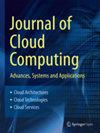HAP-assisted multi-aerial base station deployment for capacity enhancement via federated deep reinforcement learning
IF 3.7
3区 计算机科学
Q2 COMPUTER SCIENCE, INFORMATION SYSTEMS
Journal of Cloud Computing-Advances Systems and Applications
Pub Date : 2023-09-29
DOI:10.1186/s13677-023-00512-9
引用次数: 0
Abstract
Abstract Aerial base stations (AeBSs), as crucial components of air-ground integrated networks, are widely employed in cloud computing, disaster relief, and various applications. How to quickly and efficiently deploy multi-AeBSs for higher capacity gain has become a key research issue. In this paper, we address the 3D deployment optimization problem of multi-AeBSs with the objective of maximizing system capacity. To overcome communication overhead and privacy challenges in multi-agent deep reinforcement learning (MADRL), we propose a federated deep deterministic policy gradient (Fed-DDPG) algorithm for the multi-AeBS deployment decision. Specifically, a high-altitude platform (HAP)-assisted multi-AeBS deployment architecture is designed, in which low-altitude AeBS act as the local nodes to train its own deployment decision model, while the HAP acts as the global node to aggregate the weights of local models. In this architecture, AeBSs do not exchange raw data, addressing data privacy concerns and reducing communication overhead. Simulation results show that the proposed algorithm outperforms fully distributed MADRL algorithms and closely approximates the performance of multi-agent deep deterministic policy gradient (MADDPG), which requires global information during training, but with less training time.基于联合深度强化学习的hap辅助多航点基站部署
摘要空中基站(AeBSs)作为地空一体化网络的重要组成部分,在云计算、灾害救援等各种应用中有着广泛的应用。如何快速有效地部署多aebs以获得更高的容量增益已成为一个关键的研究问题。本文以系统容量最大化为目标,研究多aebs的三维部署优化问题。为了克服多智能体深度强化学习(MADRL)中的通信开销和隐私挑战,我们提出了一种用于多aebs部署决策的联邦深度确定性策略梯度(Fed-DDPG)算法。具体而言,设计了一种高空平台辅助的多AeBS部署架构,其中低空AeBS作为局部节点训练自身的部署决策模型,HAP作为全局节点聚合局部模型的权值。在此体系结构中,aebs不交换原始数据,从而解决了数据隐私问题并减少了通信开销。仿真结果表明,该算法优于全分布式MADRL算法,性能接近多智能体深度确定性策略梯度(madpg)算法,后者在训练过程中需要全局信息,但训练时间更短。
本文章由计算机程序翻译,如有差异,请以英文原文为准。
求助全文
约1分钟内获得全文
求助全文
来源期刊

Journal of Cloud Computing-Advances Systems and Applications
Computer Science-Computer Networks and Communications
CiteScore
6.80
自引率
7.50%
发文量
76
审稿时长
75 days
期刊介绍:
The Journal of Cloud Computing: Advances, Systems and Applications (JoCCASA) will publish research articles on all aspects of Cloud Computing. Principally, articles will address topics that are core to Cloud Computing, focusing on the Cloud applications, the Cloud systems, and the advances that will lead to the Clouds of the future. Comprehensive review and survey articles that offer up new insights, and lay the foundations for further exploratory and experimental work, are also relevant.
 求助内容:
求助内容: 应助结果提醒方式:
应助结果提醒方式:


